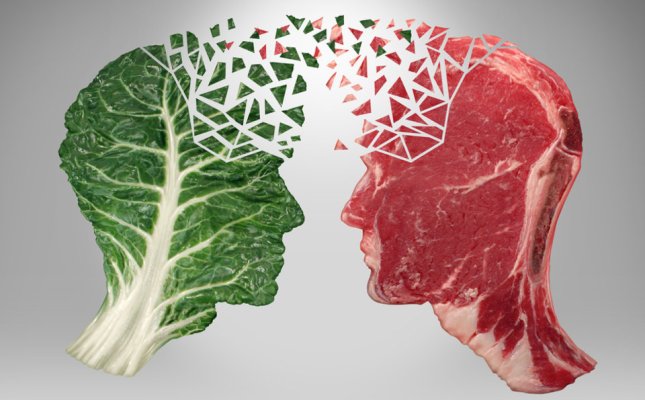Vegetarian vs non-vegetarian: which one is better?
In recent years, there have been many ongoing debates as to whether vegetarian diets are better than non-vegetarian diets and vice versa. One of the most important aspects of an athlete’s workout and training is their diet. Fueling one’s body with the proper amount of protein, carbohydrates, fats, vitamins and minerals is essential to be a healthy athlete. People all around are slowly becoming more conscious about their health and therefore it is of utmost importance that they know which diet is best for them.
Many believe that lean meat, poultry and fish are the best sources of protein, but that common belief can be misleading. An article from the American Heart Association regarding servings said that just a half cup of cooked beans is equivalent to one ounce of meat. A half cup of beans contains seven grams of protein, and according to Healthline Nutrition, “Men require about 56 grams whereas women require around 46 grams of protein per day.” Other equivalents to meat include peanut butter, nuts and lentils as well as tofu and soybeans. The human body needs protein to survive, and it is well available from many other meat alternatives like grains and greens.
There have also been many negative side effects of eating meat, poultry and fish. An article by the National Centre of Biotechnological Information states that the long-term consumption of red meat is highly associated with cardiovascular diseases as well as cancer and diabetes. Furthermore, consuming seafood can put one’s health at risk since specific seafood may contain chemicals from the water they were retrieved from. On the contrary, a plant-based, vegetarian diet helps athletes improve their stability, agility and overall performance. These diets lead to lowering the risks of cancer, diabetes, heart diseases and blood pressure. One very common misconception is that plants do not have enough protein. However, the problem lies in the amount of food one eats. Consuming more, results in more nutritional intake, and this may vary from person to person.
In conclusion, the choice remains with the person. Regulated consumption of either meat or plants would surely provide the necessary nutrients one needs, however, each has its pros and cons. Athletes require these nutrients to help build their muscles and hence it is essential for them to find a diet that suits them the best.











